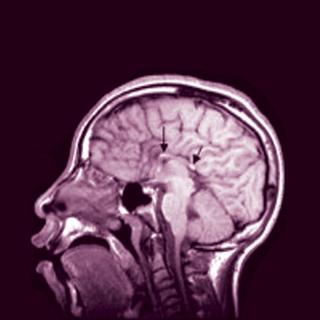
Untrending: The Keto Diet Might Help Weight Loss, But That Doesn’t Make It Healthy
Like most fad diets, keto come with a trade-off.

In Untrending, we side-eye the latest fads so we know what we’re getting ourselves into — and what (if anything) we’re getting out of them.
We’ve been here before — Atkins, Whole30, Paleo are all low-carb weight loss diets that paved the way for the most restrictive of them all: the ketogenic (keto) diet.
Unfortunately, it’s not a case of practice making perfect. It’s more like a string of toxic relationships culminating in Christian Grey.
The keto diet claims to force the body into permanent ketosis — a metabolic state characterized by increased levels of ketones, the form of energy the body makes when burning fat stores. Ketones are one of two types of energy the brain uses, the other being glucose. In the keto diet, any food that breaks down primarily into glucose — that is, most carbohydrates and proteins — is highly restricted, while high-fat foods that break down into ketones — butter, fish, eggs, cheese, bacon, avocados — are encouraged.
In this way, the keto diet claims to make the body more reliant on and efficient at burning fat. But this is a self-evident claim: As nutritional scientist Alan Flanagan told Laura Thomas in her takedown of the keto diet published in The Guardian, “If you eat more fat, you’ll use more fat for energy.”
Whether it makes the body more efficient at burning excess body fat is a different question, and one that doesn’t have a lot of evidence behind it. Anecdotes abound attesting to the keto diet’s effectiveness at short-term weight loss — but most experts agree this is likely due to cutting out unhealthy, processed foods and sugar. There’s little proof keto (or any diet, for that matter) is effective in long-term weight loss, Thomas notes.
Related on The Swaddle:
Untrending: Does Intermittent Fasting Really Work?
All of this obscures the real question, however, by confusing weight loss with health. For some people, weight loss may be required for better health. For these people, the keto diet might be helpful — in consultation with a doctor and nutritionist — though lab tests of overweight men suggest keto is no more helpful than other weight loss regimens. The keto diet may also have health benefits for children with severe epilepsy. (Ketogenic diets have actually been known to help control seizures in people unresponsive to epilepsy medication for the past 100 years, proving there’s no new diet under the sun, just re-appropriated ones.) And the keto diet may also be helpful in controlling blood sugar levels (but again, only in consultation with a doctor, because limited research hints that the keto diet might actually cause some people to become more glucose intolerant and contribute to the development of diabetes).
But keto doesn’t advertise itself in these ways. Like most diets, it advertises itself to the average person who want to be healthier, fitter. The problem is, there’s no evidence that keto is a healthier diet. In fact, there’s evidence to the contrary: A study of more than 15,000 adults published last year in the esteemed international journal, The Lancet, concluded that a diet comprising 50% to 55% carbohydrates (far more than the 5% allowed by the keto diet), and the remaining half plant-based protein, was optimal and associated with longer life spans than higher or lower amounts of dietary carbs.
There’s also the fact that long-term adherence to the keto diet (if you manage it) can actually damage good health, putting devotees at risk of key nutrient deficiencies, cardiovascular disease and certain forms of cancer.
Bottom line? A keto diet might help you lose weight, but it won’t help you keep it off. And it’s health benefits, for the average person, are basically nil.
Liesl Goecker is The Swaddle's managing editor.
Related


There Are Human Drugs in Your Drinking Water Supply
